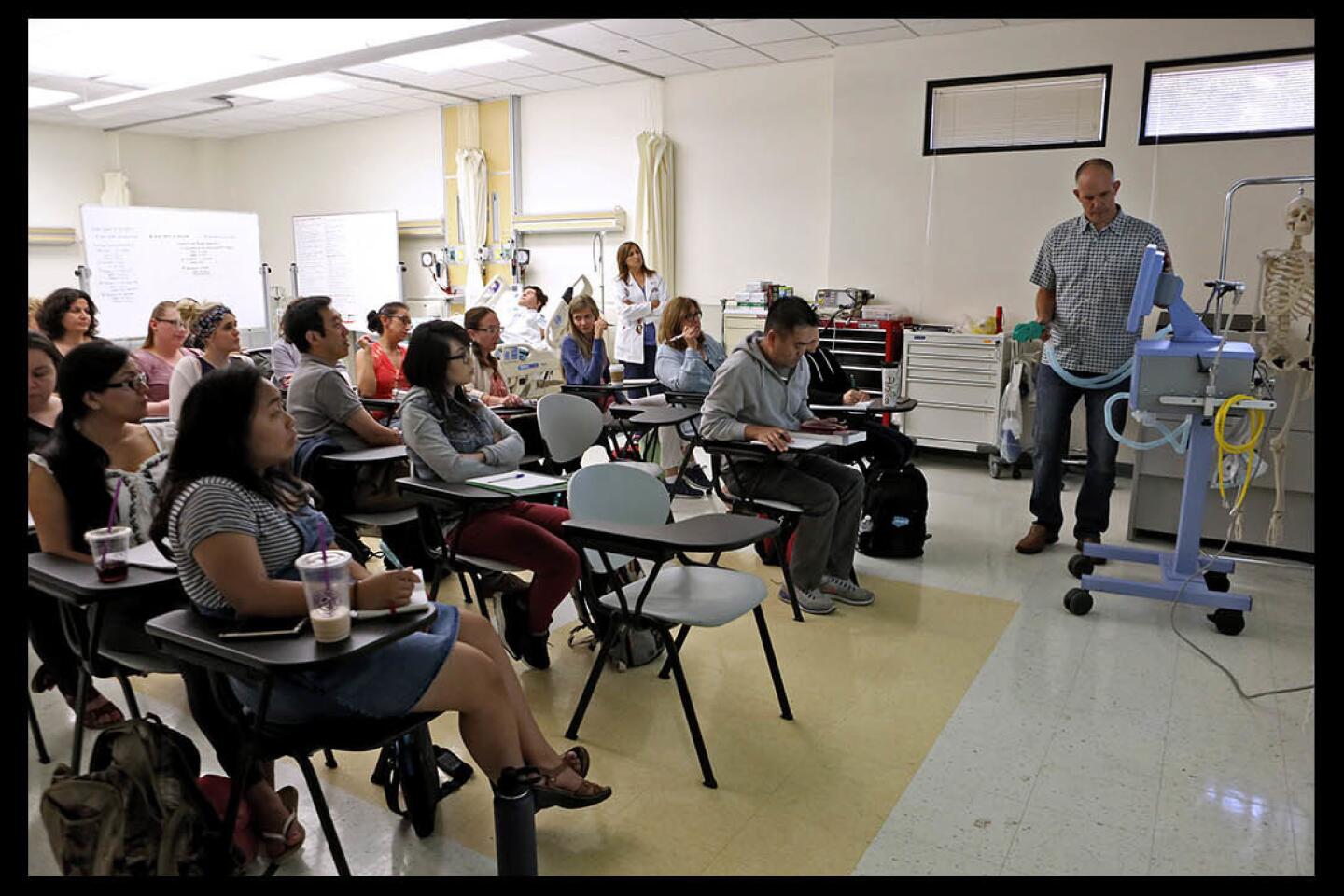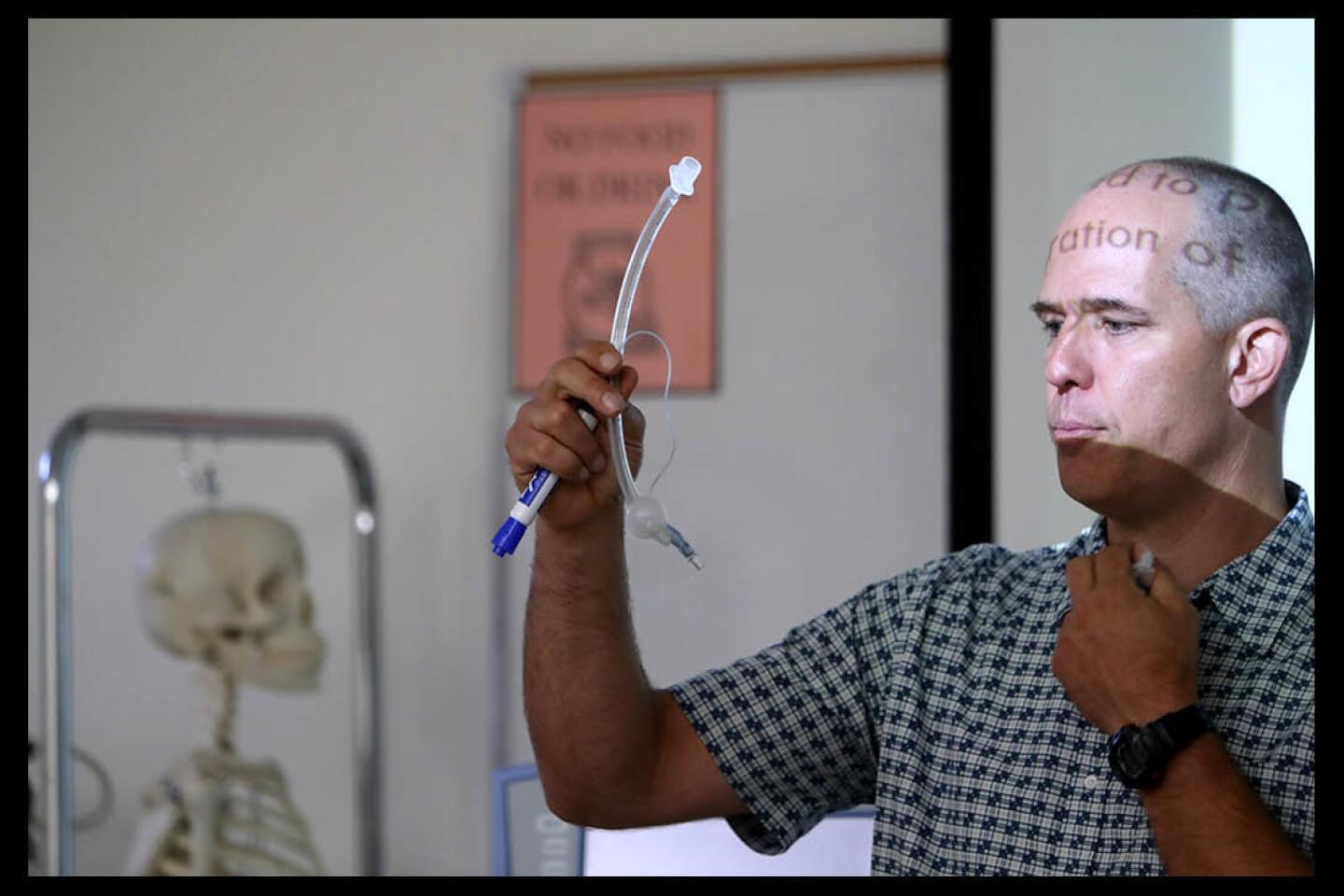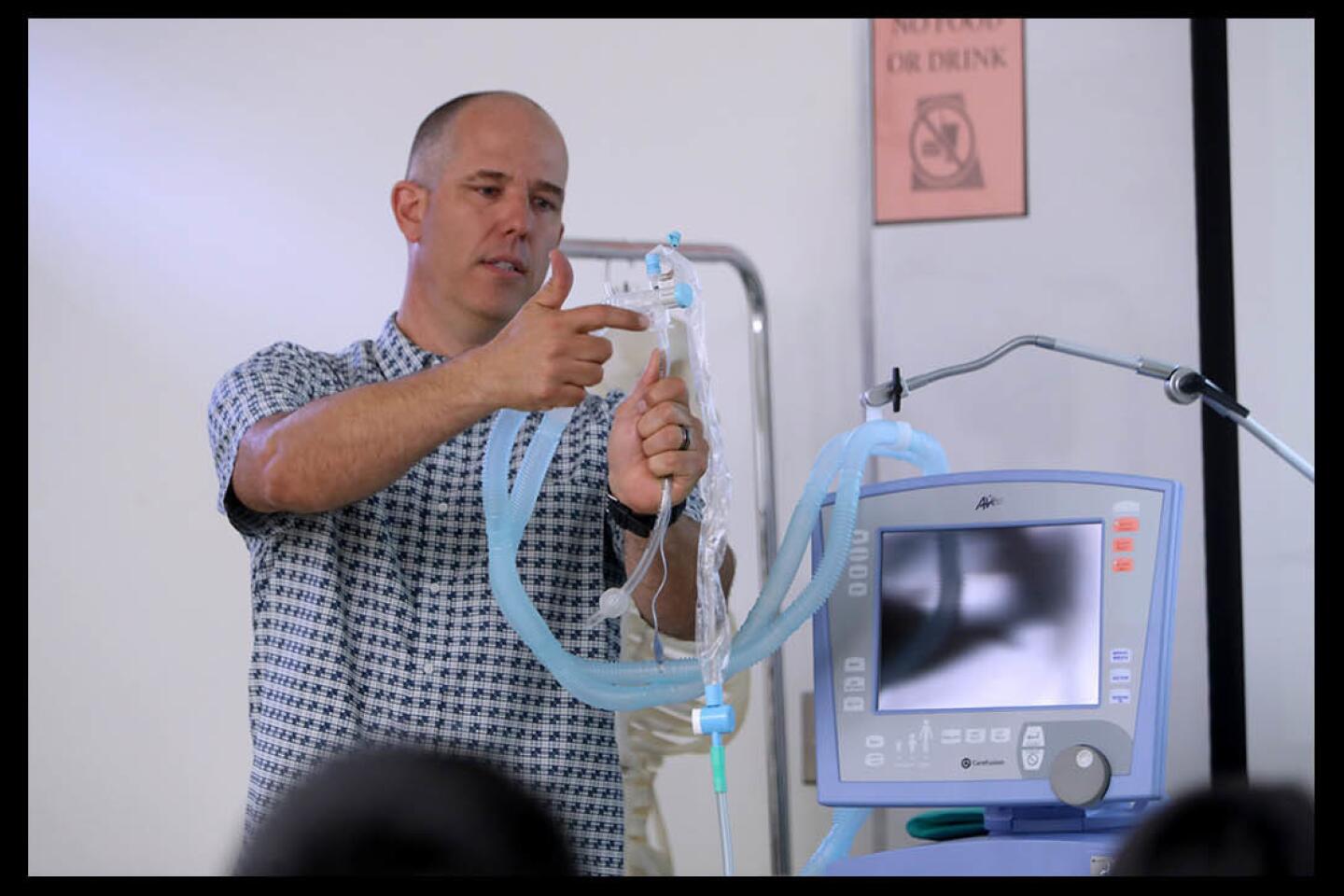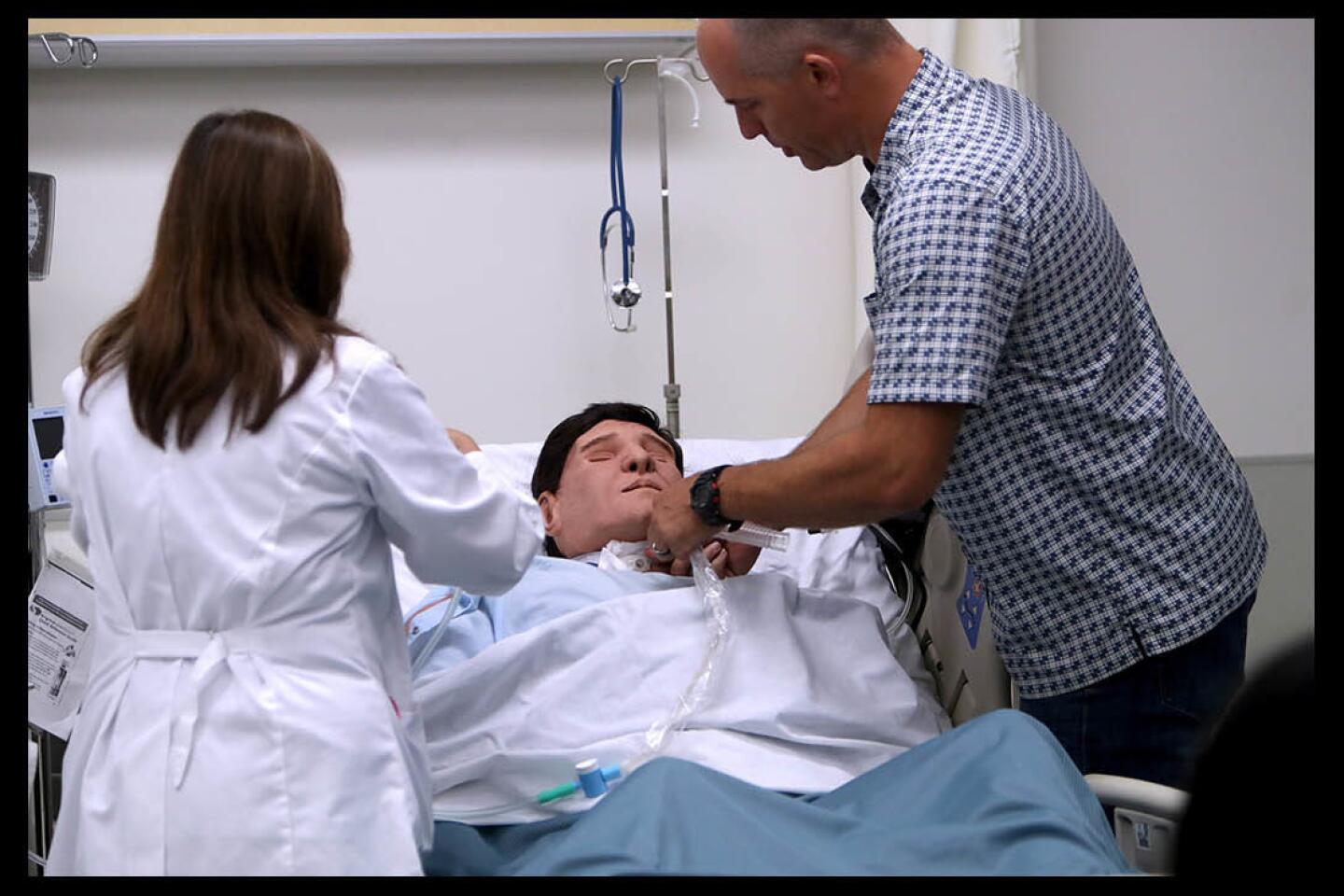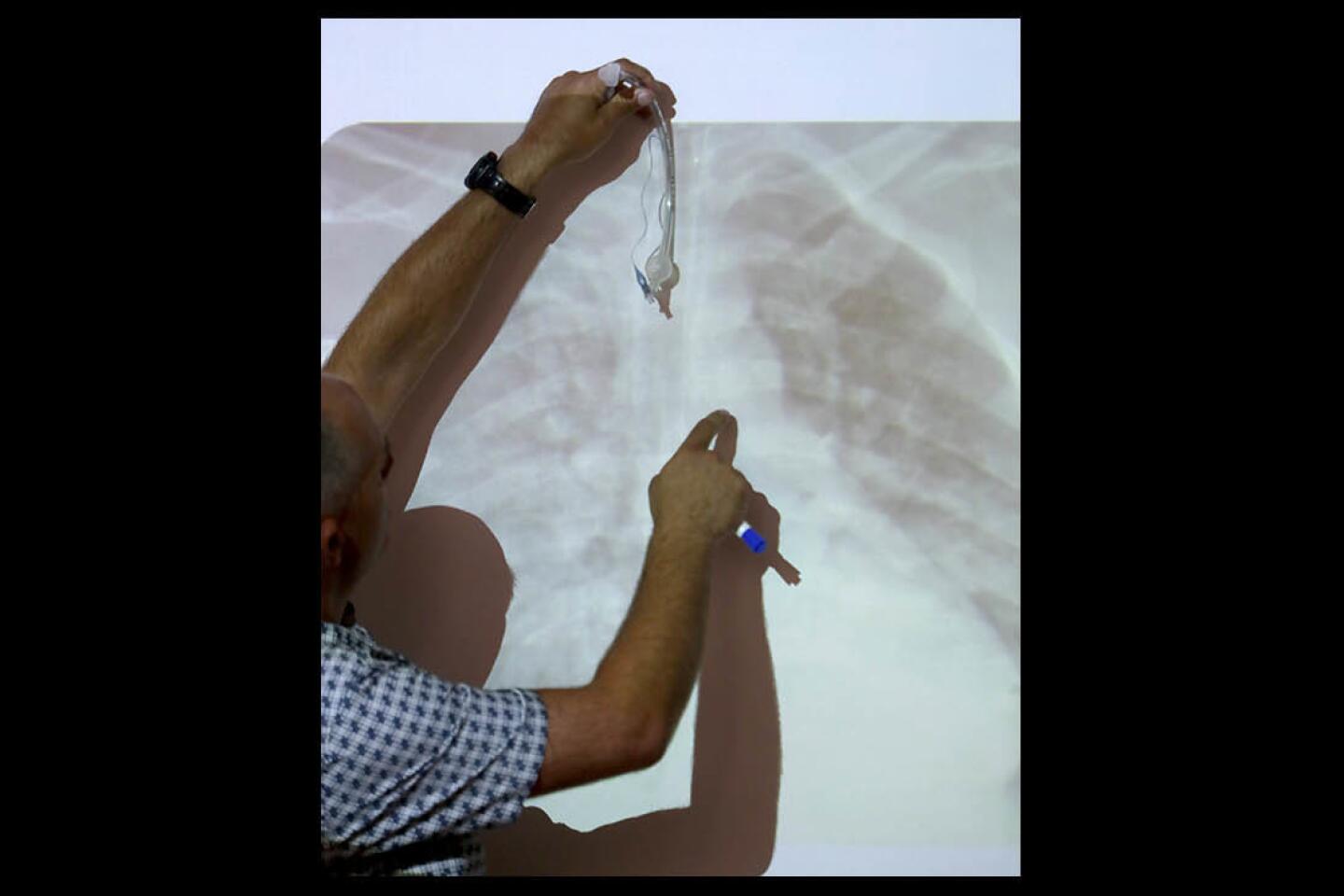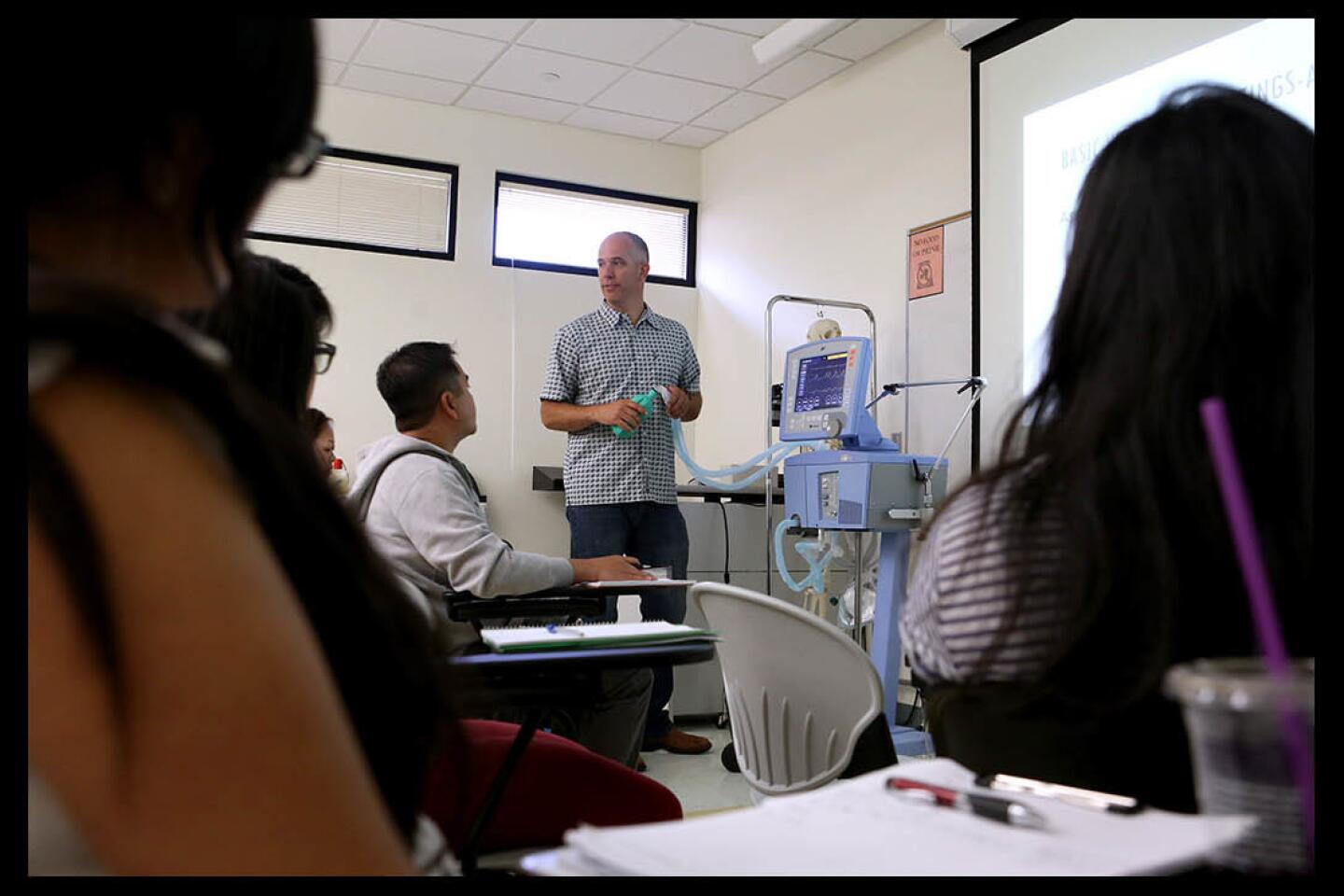Glendale Community College nursing program helps fill critical care gap
For eight weeks this summer, innovation meets enterprise at the Glendale Community College nursing program.
The department is conducting a coveted critical care course that ends Aug. 15 and has drawn attention throughout the state.
Glendale nursing division chair Emelyn Judge pushed for a Strong Workforce Program grant, an offering created in 2016 for which the state set aside $248 million to allow community colleges to launch career technical education.
“There are shortages in California for specialized nursing and this class helps fit that need,” Judge said. “We’ve gone to different meetings with hospital associations and have heard about education issues.”
Judge said Glendale Community College received $800,000 for CTE classes, headed by Jan Swinton, dean of Workforce Development.
Judge secured a portion of that funding to develop a specialized critical care class open to licensed registered nurses.
The weekly class meets from 7 a.m. to 3:30 p.m. on Wednesdays. It got underway June 20.
Participants pay $275 for the class and books but have that fee reimbursed upon successful completion.
On top of training, nurses can earn electrocardiogram certification and earn 60 hours of continuing education units. The California Board of Registered Nursing requires 30 hours of continuing education every two years for nursing license and certificate renewal.
On a recent Wednesday, a packed class receives a guest lecture from Drew Martenson, White Memorial Hospital respiratory manager.
Martenson is conducting a lesson on basic ventilator settings and goes over ventilation and oxygenation.
“There are shortages in California for specialized nursing and this class helps fit that need.”
— Glendale nursing division chair Emelyn Judge
The demonstration is taking place in a studio that’s half classroom, half realistic-looking hospital critical care ward complete with special beds, a new ventilator and three medical mannequins that range from $60,000 to $80,000.
The lifelike and slightly eerie-looking bodies are used to practice cleaning wounds, offering treatment and even delivering birth.
Down the hallway is another room that’s set up as half computer lab and half hospital setting.
Judge said the temporary course was created to help meet a need in specialty nursing.
Hospital Assn. of Southern California and HealthImpact, a nursing agency, released an executive summary in 2016 stating an expected shortage of nurses statewide in the fields of critical care (2,230), emergency (1,392), perioperative (1,072), labor and delivery (864) and neonatal intensive care unit (688) for 2017.
One of the study’s key findings noted that the lack of qualified nurses was partially due to an “insufficient pre-licensure education specific to specialties.”
So sparse is training that Glendale’s course drew students from afar.
“I saw a posting about this class on Facebook and I shared it with my friend,” said San Francisco resident Meauyie Guan. “It’s rare to have this kind of class focused on critical care.”
Guan and her South San Francisco ally Caitlyn Chi, who met working at Crossroads Home Health and Hospice in San Francisco, fly in every Tuesday before midnight to attend the daylong class and return home Wednesday evening.
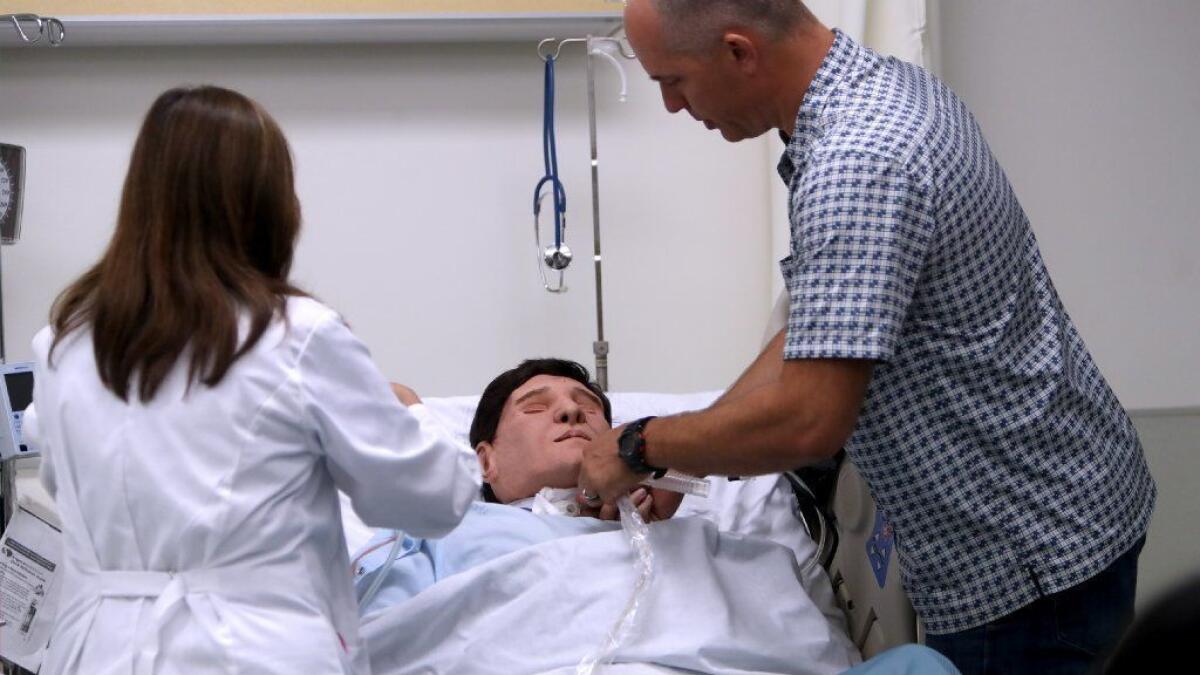
“The only other option was a virtual class without a classroom and instructor,” Chi said. “You can’t ask questions, you can’t interact. Plus, that class charges like five times the amount of this class.”
A little closer to the Jewel City, 2016 GCC nursing graduate Karen Staron didn’t need convincing.
“Having the Glendale [Community] College nursing program behind this program, I knew it would be excellent,” said Staron, who works at the Alhambra Behavioral Health Center. “Because I graduated from this program, they instill in you to keep up with your education. This gave me a chance to get a head start on my CEU units. Plus, this is 10 minutes from my house.”
A robust and diverse class is something Glendale Assistant Nursing Program Director Michelle Ramirez Saelak believes is positive.
“Having worked here for the last 12 years, I pride myself on quality,” Ramirez Saelak said. “It’s hard being the guinea pigs, but then when you see someone flying in you know you better not waste their time. You know that your game needs to be on.”
Judge says there is likely enough grant money for the course to be conducted another summer, but her long-term goal is to get the class approved as a credit course.
“It’s a project and hope of mine,” Judge said. “It just takes a while and there’s a lot of paperwork, but there’s definitely a need.”
